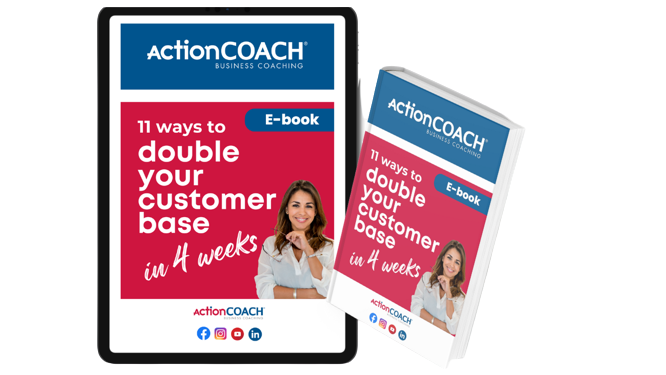Group coaching, also known as peer business coaching, involves gathering a group of small business owners, employees, or executives to pursue common goals and solve shared challenges in their businesses.
One example of peer coaching groups is those that bring together new corporate leaders or small business owners from the same industry. These groups provide collaborative settings where participants can share their experiences and insights to effectively address business issues. For small business owners, group coaching can be especially helpful – it enables owners to access learnings that wouldn’t otherwise be available to them.
Group Business Coaching Definition
Group coaching is a program that helps business owners and leaders develop and implement long- and short-term goals. Group coaching clarifies your company's objectives and key strategy so you and your team know what you're aiming for and how to get there.
Group Coaching vs. Team Coaching
Team coaching involves all participants working together towards the same purpose and goal to improve the team's overall performance. Unlike ‘team coaching’, participants in group coaching do not have to work together in their day-to-day jobs, and the emphasis is on improving each individual.
What Does a Group Business Coach Do?
A group coach encourages talks and leads planned exercises for the peer group to bring new perspectives, insights, and expertise to the surface. The purpose of group coaching is to help participants learn other points of view, provide an opportunity to deliver and receive feedback, and establish connections based on trust and shared experience that last long after the group coaching program is over.
When Do You Need a Group Coach?

Small business owners often face unique challenges that can make running a business a difficult and isolating experience. Group coaching can be a great way to connect with like-minded individuals and gain the support, guidance, and accountability needed to overcome these challenges and succeed in business. In this article, we'll explore some of the key scenarios where small businesses can benefit from group coaching.
Building a Supportive Community
Small business owners often struggle with feelings of isolation and loneliness. Group coaching can help build a supportive community where business owners can connect with others who understand their challenges. Being part of a group can help small business owners feel less alone and more supported, which can be invaluable when it comes to managing stress and staying motivated.
Setting and Achieving Goals
Group coaching can be an effective way for small business owners to set clear goals and develop strategies to achieve them. A coach can provide guidance and accountability to ensure that goals are met, and progress is made. This can be particularly helpful for small businesses that are struggling to grow or are facing specific challenges such as cash flow issues, low sales, or employee turnover.
Enhancing Skills
Group coaching can also be a great way for small business owners to enhance their skills and knowledge in specific areas such as marketing, sales, finance, and leadership. A coach can provide training and resources to help business owners improve their skills and internal systems. This can be particularly helpful for small businesses that are looking to expand or enter new markets.
Overcoming Challenges
Small businesses face challenges ranging from managing finances to dealing with difficult customers. Group coaching can help business owners navigate these challenges by providing guidance and support. A coach can offer advice on how to manage cash flow, develop effective marketing strategies, or handle difficult customers. This can be particularly helpful for small businesses that are struggling to stay afloat or experiencing a high level of stress.
What Should You Look for in a Group Coach?
A group coach can be an invaluable resource for small business owners looking to improve their skills, gain new insights, and grow their businesses. But, with so many coaches out there, it can be challenging to know what to look for. Here are some essential qualities to consider when choosing a group coach for your small business.
Experience and Expertise
First and foremost, you want a group coach who has experience working with small business owners. Look for someone who has a proven track record of helping businesses similar to yours. They should have the necessary skills and knowledge to guide you through your unique challenges.
It's also essential to consider their coaching expertise. Are they trained in a particular coaching method or approach? Do they have a background in business consulting, leadership development, or another relevant field? You want to work with a coach who has the expertise and experience to help you achieve your specific goals.
Strong Communication Skills
Effective communication is critical when working with a group coach. You need someone who can listen actively, provide clear feedback and guidance, and facilitate group discussions. Look for a coach who can communicate effectively in both one-on-one and group settings.
It's also important to consider the coach's communication style. Do they use a collaborative approach, or are they more directive? Do they ask open-ended questions to encourage discussion and exploration, or do they provide answers and solutions? You want a coach who can adapt their communication style to meet the needs of your group and individual members.
Understanding of Small Business Dynamics
Small businesses have unique dynamics that can impact coaching outcomes. For example, group members may have limited time and resources, wear multiple hats, and face constant pressure to perform. Your coach should have a deep understanding of these dynamics and be able to work within them.
Look for a coach who has experience working with small businesses or who has owned or operated a business themselves. They should understand the challenges you face and be able to offer practical, actionable advice.
Results-Oriented Approach
Your group coach should be focused on helping you achieve measurable results. Look for someone who has a clear process for setting goals, measuring progress, and evaluating outcomes. They should be able to help you identify key performance indicators (KPIs) and develop a plan to achieve them.
It's also essential to consider their track record of success. Can they provide examples of other small businesses they have helped? What metrics do they use to evaluate success? You want a coach who is committed to helping you achieve tangible results.
Compatibility and Rapport
Finally, you a coach who is compatible with your learning style. Look for someone who is empathetic, supportive, and easy to work with. They should be able to build rapport with your group members and create a safe, positive learning environment.
It's also important to consider your coach's values and philosophy. Do they align with your own? Do they have a coaching style that resonates with your group? You want a coach who is a good fit for your business and who can help you achieve your goals in a way that feels authentic and aligned with your values.
What Qualifies Someone to Be a Group Coach?
All coaches are not made equal. Some lack a clear development program or a track record of results. It’s important to conduct research for the greatest group coaching experience.
1. Leadership and Business Experience
It isn’t necessary to be the CEO of a Fortune 500 company to lead others, but understanding leadership skills and the intricacies of a sector can be extremely helpful.
Remember that the primary role of a coach is to help you develop the skills and awareness necessary to uncover the answers for yourself. However, if a coach has experience in your sector, they may be able to provide more relevant guidance and more feasible solutions.
2. Understanding of Human Behaviour
Your group coach should possess well-rounded knowledge of group dynamics, communication styles, personality types, and effective group management. A basic understanding of behavioural psychology will also help them accurately diagnose group behaviours and develop better strategies for group productivity.
3. Effective Communication
Group coaches must demonstrate effective communication skills. This involves being capable of handling challenges, motivating participants, and engaging them in conversation.
On top of this, group coaches should also be able to work with people from diverse cultural and socioeconomic backgrounds. Effective group coaching is achieved by catering towards different personalities and understanding each individual's needs, all while ensuring progress towards individual goals.
4. Skill in Constructive Feedback
One essential trait that group coaches must possess is the ability to actively listen. They should be able to carefully listen to the participants’ concerns and queries to identify key issues efficiently.
Additionally, group coaches must give helpful and constructive feedback to motivate group members and guide them on their respective journeys. Ultimately, these skills enable group coaches to provide a safe, non-judgmental environment where individuals can learn, reflect, and grow together.
5. Experience Leading and Facilitating Groups
The role of a group leader or facilitator is to create a safe and productive environment where everyone feels comfortable sharing their ideas and perspectives. By setting clear guidelines, asking powerful questions, and fostering a positive group dynamic, coaches can help their group members explore their thoughts and emotions in a deeper way and work together towards achieving their goals.
How to Measure Group Coaching Results
Group coaching can be an incredibly powerful tool for achieving personal and professional growth. However, without proper measurement and evaluation, it can be difficult to determine whether the coaching is effective. Here are some useful ways to measure group coaching results:
- Define clear goals and metrics. To define what ‘success’ looks like, you need specific, measurable, and achievable objectives. You can learn more about proving the ROI of business coaching here.
- Track progress. How is your business responding to the coaching? While targeting low-hanging fruit can deliver quick results, many business changes can take around 90 days to really begin showing up in your metrics.
- Solicit feedback. One of the big strengths of group coaching is the easy access to feedback. Make sure you’re getting constant feedback from your peers and your coach (and make sure you respond in kind with thoughtful, constructive feedback of your own).
By implementing these measurement methods, business owners and entrepreneurs can monitor the effectiveness of their group coaching sessions. If you don’t feel like you’re receiving a good return on your investment, make sure you work out why. Is it the group coaching environment that's hindering your learning? The individual coach? Or another attendee?
Once you identify the root cause of the issue, you can take appropriate action, such as moving to a different provider or coaching style.
Next Steps
Group business coaching can be a transformative experience for individuals looking to grow their skills and achieve their goals. By working with a coach in a group setting, you can gain valuable insights, develop new strategies, and receive the support you need to make real progress in your business.
Whether you’re an entrepreneur or a small business owner, group coaching can help you unlock your full potential and achieve greater commercial success. Click here to book a discovery session.

